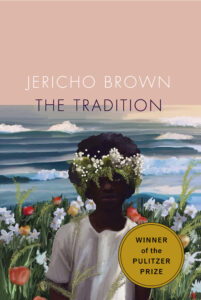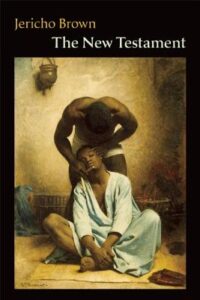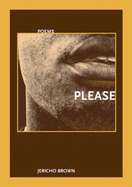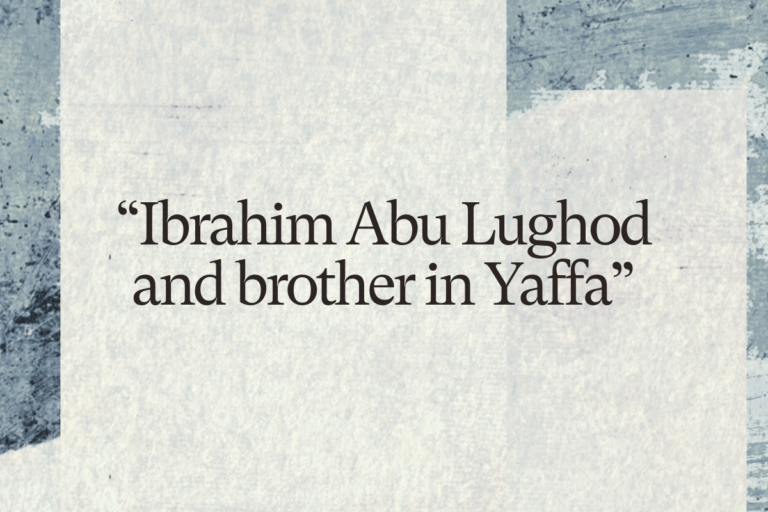Jericho Brown
Poems as Teachers | Episode 5
In “Hebrews 13” by Jericho Brown, a narrator says: “my lover and my brother both knocked at my door.” The heat is turned on, scalding coffee is offered and hastily swallowed, and silence is the soundtrack. What an exquisitely awkward triangle it is, and what a human, beautiful, and loving shape that can be.
This is the fifth episode of “Poems as Teachers,” a special seven-part miniseries on conflict and the human condition.
We’re pleased to offer Jericho Brown’s poem, and invite you to read Pádraig’s weekly Poetry Unbound Substack, read the Poetry Unbound book, or listen back to all our episodes.
Guest
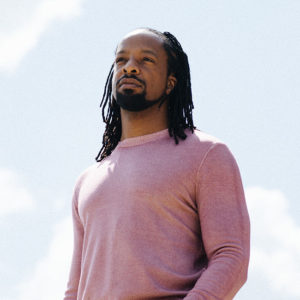
Jericho Brown is the Charles Howard Candler Professor of English and Creative Writing at Emory University, where he also directs the university’s creative writing program. His books of poetry are The New Testament, Please, and The Tradition, for which he won the Pulitzer Prize in 2020.
Transcript
Transcription by Alletta Cooper
Pádraig Ó Tuama: My name is Pádraig Ó Tuama, and one of the things that can often be really powerful in the context of conflict that happens between people is when two people who wouldn’t have been friends with each other, might’ve had huge differences, suddenly find something that they mutually hate and their bond goes really deep because they’re suddenly like, “Do you hate that thing?” “Yeah, I hate that thing.” That can be called triangulation, and it can be really unhelpful, even if it can feel lovely at the start.
But there’s another way that triangulation can happen, which is where two people who have differences with each other can find something that drives them deeper into love, and care, and courage; and that is an extraordinary thing when it happens. That kind of triangulation is built on something that deepens their humanity, deepens their point of view, possibly deepens their differences as well, but shows their differences in a light where they can sustain them in the context also of honoring human relationship.
[music: “Praise the Rain” by Gautam Srikishan]
“Hebrews 13” by Jericho Brown
“Once, long ago, in a land I cannot name,
My lover and my brother both knocked
at my door like wind in an early winter.
I turned the heat high and poured coffee
Blacker than their hands which shivered
As we sat in silence so thin I had to hum.
They drank with a speed that must have
Burned their tongues one hot cup then
Another like two bitter friends who only
Wished to be warm again like two worn
Copies of a holy book bound by words to keep
Watch over my life in the cold and never ever sleep”
[music: “Ashed to Air” by Gautam Srikishan]
This is a short punch of a poem from Jericho Brown. It is 12 lines long and you think maybe it’s going to be like a fable — “Once, long ago” — and often it might be followed with, “in a land far, far away” or something that would follow that along. But he says, “Once, long ago, in a land I cannot name.” And it’s not in a land I don’t remember or in a place I forget, it’s “cannot name.” I’m curious about what can’t be named. And so this poem goes from an opening mythological register suddenly into something that always makes me think of shame, because shame often is the thing that I cannot name.
The title of this poem, “Hebrews 13,” is a reference to a chapter in the New Testament Christian letter to the Hebrews. That chapter starts off with the words, “Let mutual love continue. Do not neglect to show hospitality to strangers, for by doing that some have entertained angels without knowing it.” The chapter goes on to say, remember people in prison as if you had been there with them, and remember those being tortured as if you yourself had been tortured. It’s a really interesting chapter of gorgeous psychological insight into what practical demonstrations of love look like.
And, so, when I think, therefore, of a poem that opens up with “Once, long ago, in a land I cannot name,” and then the arrival of these archetypes of brother and lover, like two slightly at dis-ease with each other angels arriving at the door. Suddenly the entire poem begins to give us a tableau of somebody in a home where people who care for the person in the home, are coming, but the two people who’ve come, the lover and the brother, it’s their shared love for a person who is in need. Is that person in prison? Is that person being tortured? Is that person living in some kind of experience of having been shamed or being ill or being isolated in one way or another? I’m not sure.
There could be an entire book full of difficult relationships and difficult words that have passed between them, but words themselves are held up to some new light by the end of the poem because they are “bound by words.” What words are these? Words of love, I’m guessing, that hold them to something that they’re willing to follow through on.
[music: “The House You Wake In” by Gautam Srikishan]
In 12 lines Jericho Brown uses so many similes. “My lover and my brother both knocked / At my door like wind in an early winter” and then “the coffee is / Blacker than their hands.” “The silence so thin,” and then “like two bitter friends,” “like two worn / Copies of a holy book.” Why is he using this technique? It’s like he’s trying to find vehicle after vehicle to contain descriptions of an unexpected meeting. And each vehicle, each simile is not trying to be sufficient, it’s just trying to say, well, it’s a bit like this; not fully like this, because the moment itself is almost uncontainable, perhaps even unnameable.
Two unexpected people — a brother and a lover — arrive and they’re “like two bitter friends” and the silence between them is so thin, but nonetheless, they’re there, in proximity with each other, sitting next to each other, trying to find warmth with each other. These two characters are like angels saying, we are here, and despite the differences between the two of us, we’re here anyway because there’s something more important than our differences.
What’s so interesting in this is that it is the site of need in the speaking voice of the poem; it is the person who was “in a land I cannot name.” Jericho Brown is so public about being a gay, Black man who lives with HIV, who has been subject to public comment about what it is to be the face of multiple identities upon which people can project their hostilities. I don’t know that this is in any way autobiographical. In a certain sense, it feels archetypal and mythological, but what he’s saying is that the person who is at the end of themself is also still exhibiting power because by them saying, I’m in need, they’re bringing together people who would’ve otherwise not found it possible to be with each other. The person who needs help is still exhibiting something of the courageous power of love by drawing people who would’ve found it impossible or near impossible to be alongside each other, to nonetheless be alongside each other.
[music: “The Willows” by Gautam Srikishan]
There’s a concept in conflict resolution called “attractors” where you can fall into a pattern of imagining whoever it is you disagree with — a group, a person, an entire population — by saying they’re all like the following, and you begin to look for the information so that you can fit them into the pattern that you have for them. They’re called attractors because they’re attractive. It can be really satisfactory to think, See? I was right. And what’s so interesting about this poem of Jericho Brown’s is that it is showing the difficulty of what it’s like to step away from the convenience of attractors.
This isn’t a poem that imagines that that is easy. You can see the cost in the poem. As they’re trying to warm themselves, “they drank with a speed that must have / burned their tongues one hot cup then / another.” It seems like they’re desperate to find some kind of warmth in anything, even coffee that’s too hot, that’s burning them. But they have discovered that they have a language, a body language really, of being alongside each other. They’ve been able to say, You’re somebody who loves the person behind that door so much that you’re willing to do this alongside me, as well. So they’ve reframed what’s held them apart.
What I love is that the intelligence of this poem, too, doesn’t say: and they all lived happily ever after. It is not saying they vote the same, they think the same, they do the same, it’s all the same now, it’s all fine. This poem is not flimsy in its imagination of the cost of such love, nor is it flimsy in its imagination to say just because people represent archetypes of difference that they can never ever be near each other. They can actually. It says change is possible when the stakes are deep enough, loving enough, high enough. And what’s going to bring us to the stakes where something is the “enough,” where we can find a way to deeply disagree — is not just like common ground, but it’s common care, it’s common love. It’s in the body and it’s in the way that they hold this vigilance, “watch over my life in the cold and never ever sleep.”
[music: “Every Place We’ve Been” by Gautam Srikishan]
“Hebrews 13” by Jericho Brown
“Once, long ago, in a land I cannot name,
My lover and my brother both knocked
at my door like wind in an early winter.
I turned the heat high and poured coffee
Blacker than their hands which shivered
As we sat in silence so thin I had to hum.
They drank with a speed that must have
Burned their tongues one hot cup then
Another like two bitter friends who only
Wished to be warm again like two worn
Copies of a holy book bound by words to keep
Watch over my life in the cold and never ever sleep”
[music: “Praise the Rain” by Gautam Srikishan]
Chris Heagle: “Hebrews 13” comes from Jericho Brown’s book The New Testament. Thank you to Copper Canyon Press and Pan Macmillan who gave us permission to use his poem. Read it on our website at onbeing.org.
[music: “Praise the Rain” by Gautam Srikishan]
Additional support for this mini-season of Poetry Unbound comes from:
Civic (Re)Solve — building communities of civic empowerment.
Quiet — listen and finish listening.
And The Hearthland Foundation — committed to justice, equity and connection, one creative act at a time.
Poetry Unbound is: Gautam Srikishan, Eddie Gonzalez, Lucas Johnson, Kayla Edwards, Tiffany Champion, Cameron Musar, and me, Chris Heagle.
Our music is composed and provided by Gautam Srikishan and Blue Dot Sessions.
This podcast is produced by On Being Studios, which is located on Dakota land. Open your world to poetry with us by subscribing to our Substack newsletter. You may also enjoy Pádraig’s book, Poetry Unbound: Fifty Poems to Open Your World. For links and to find out more visit poetryunbound.org.
Books & Music
Recommended Reading
The On Being Project is an affiliate partner of Bookshop.org and Amazon.com. Any earnings we receive through these affiliate partnerships go into directly supporting The On Being Project.





